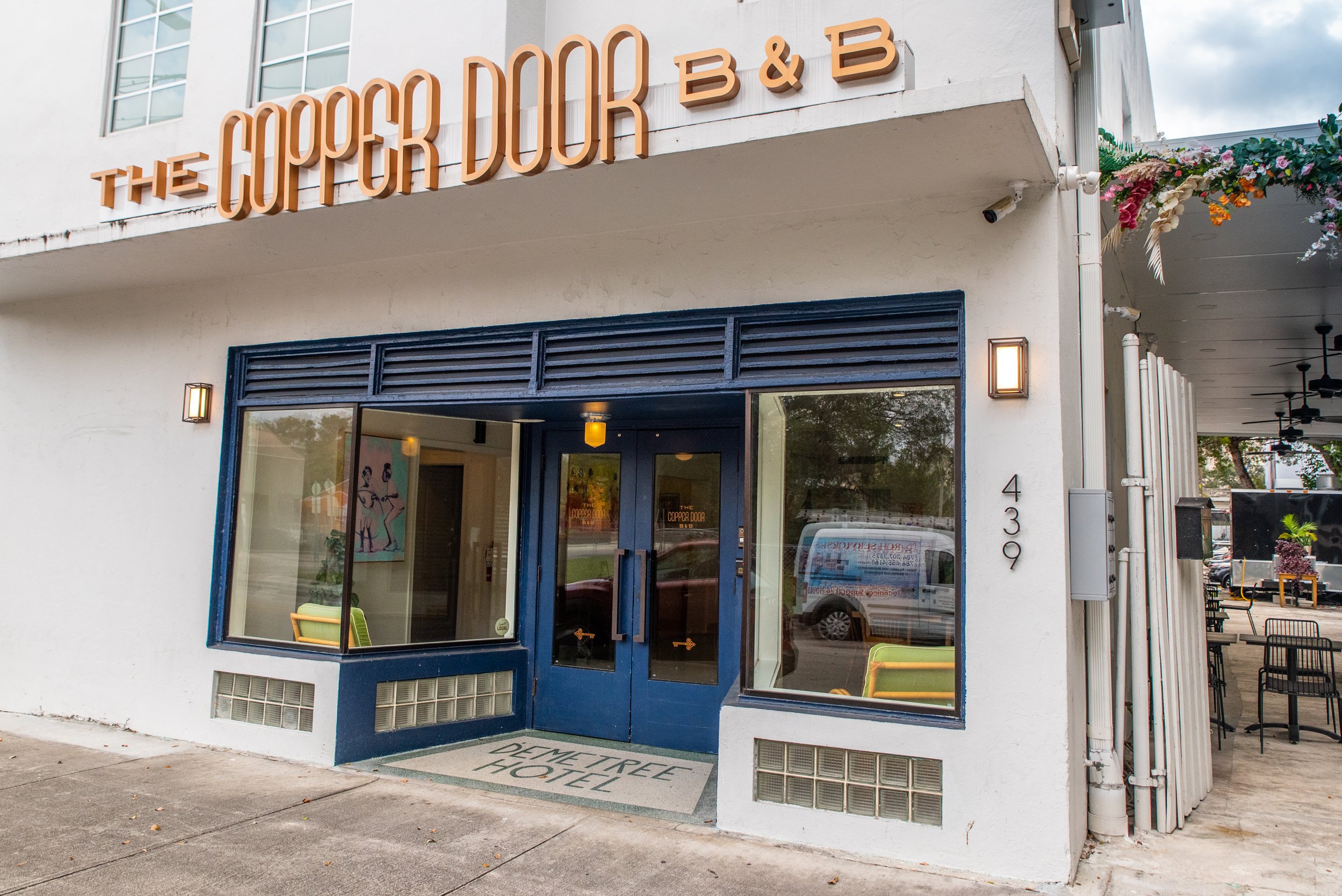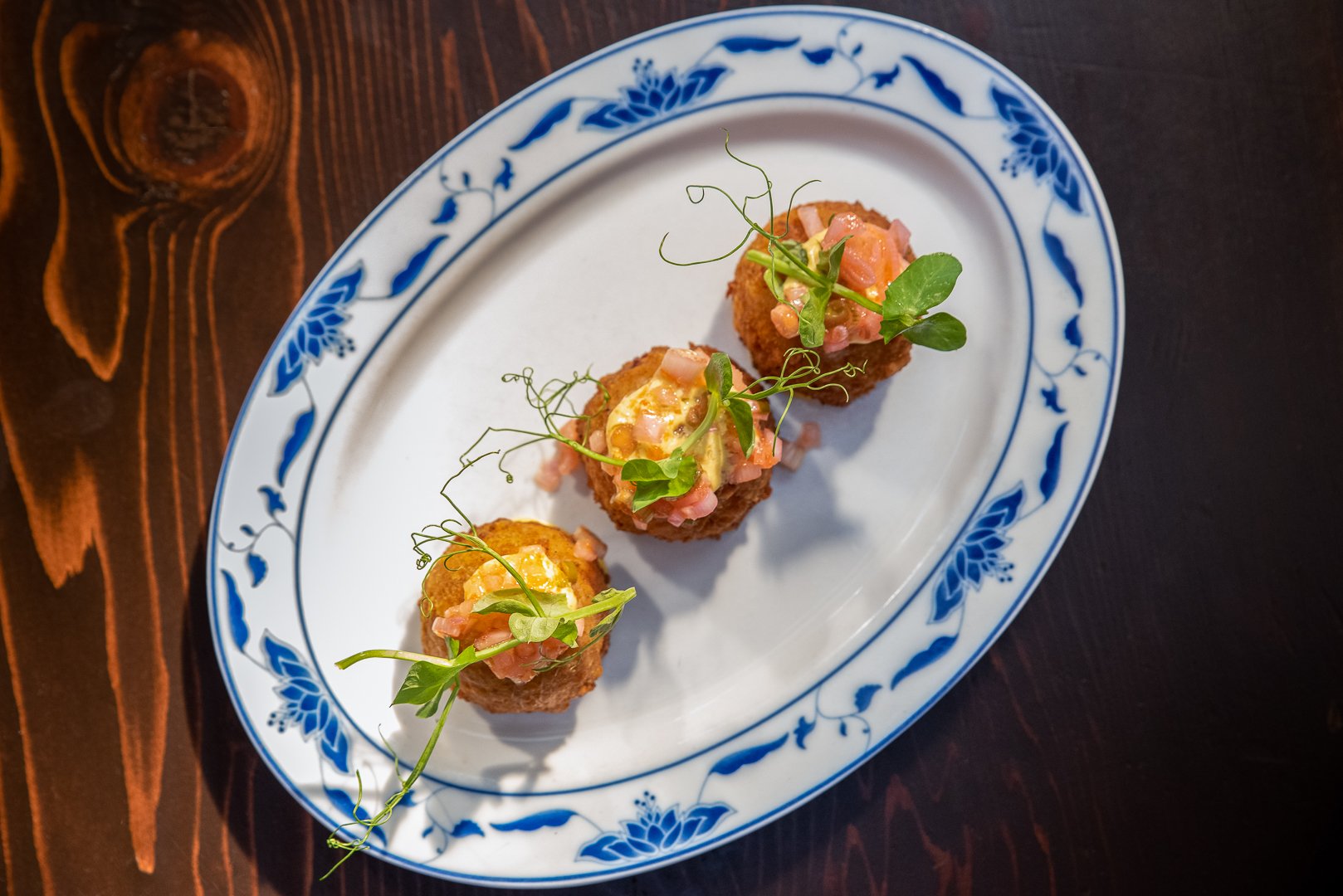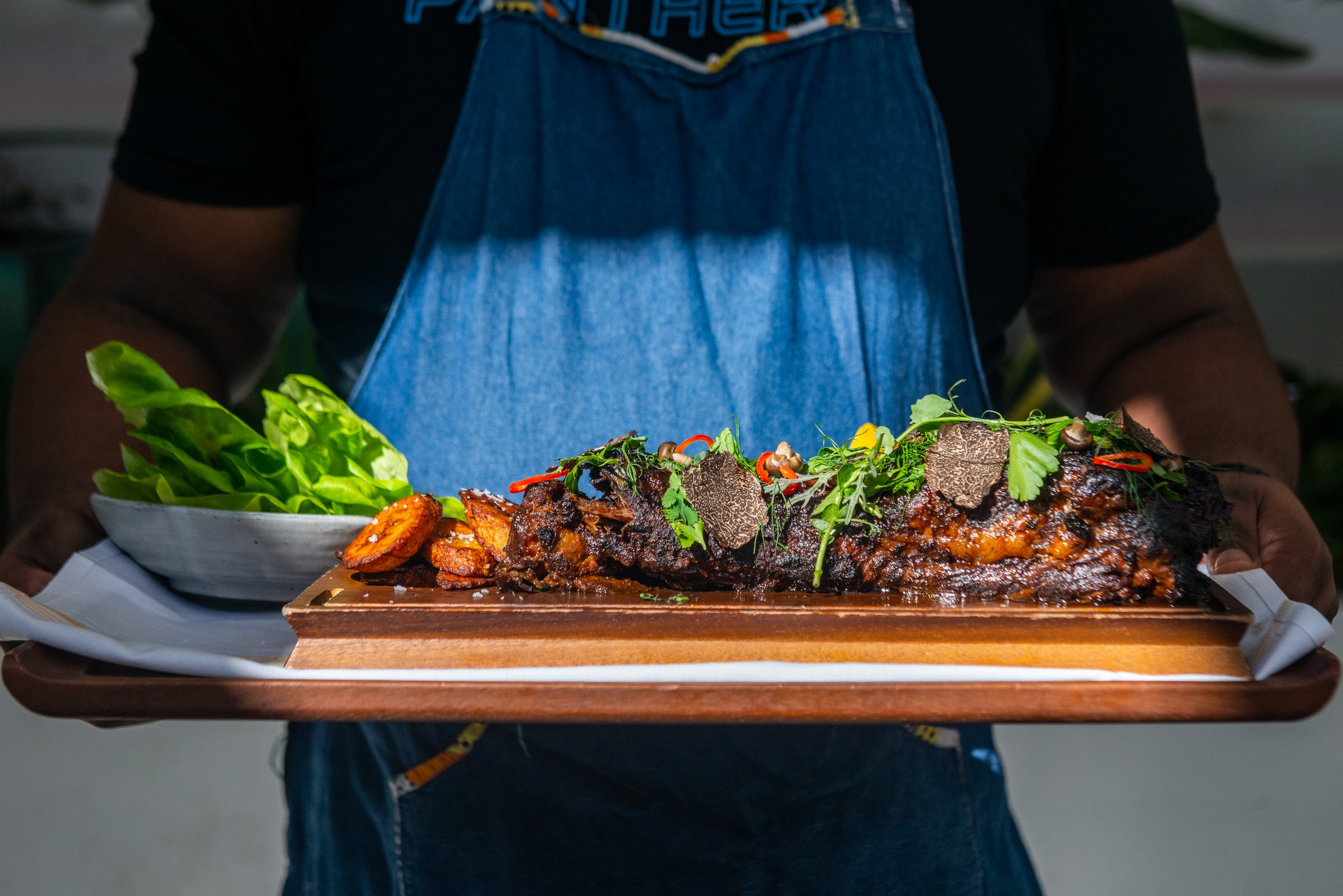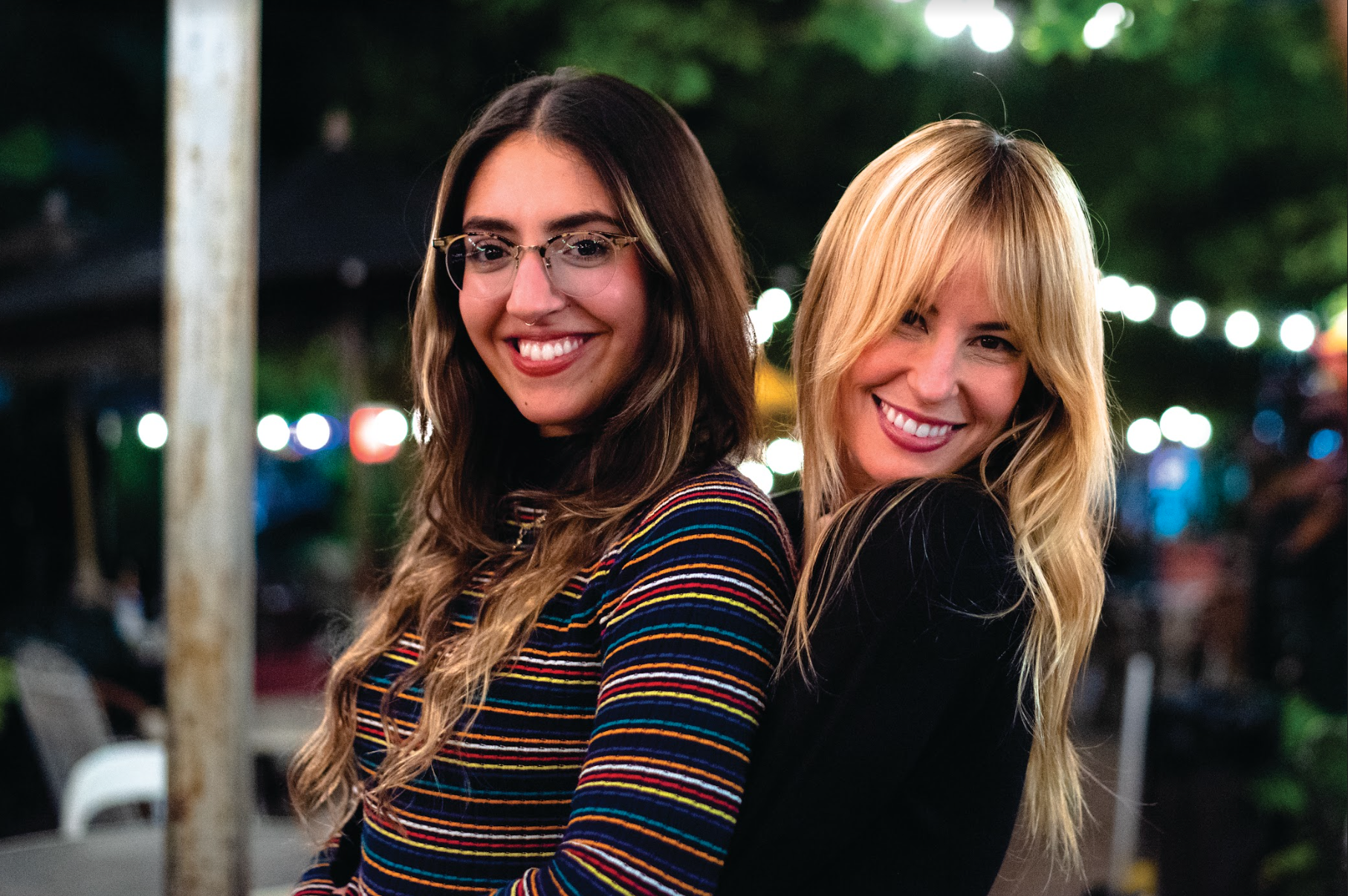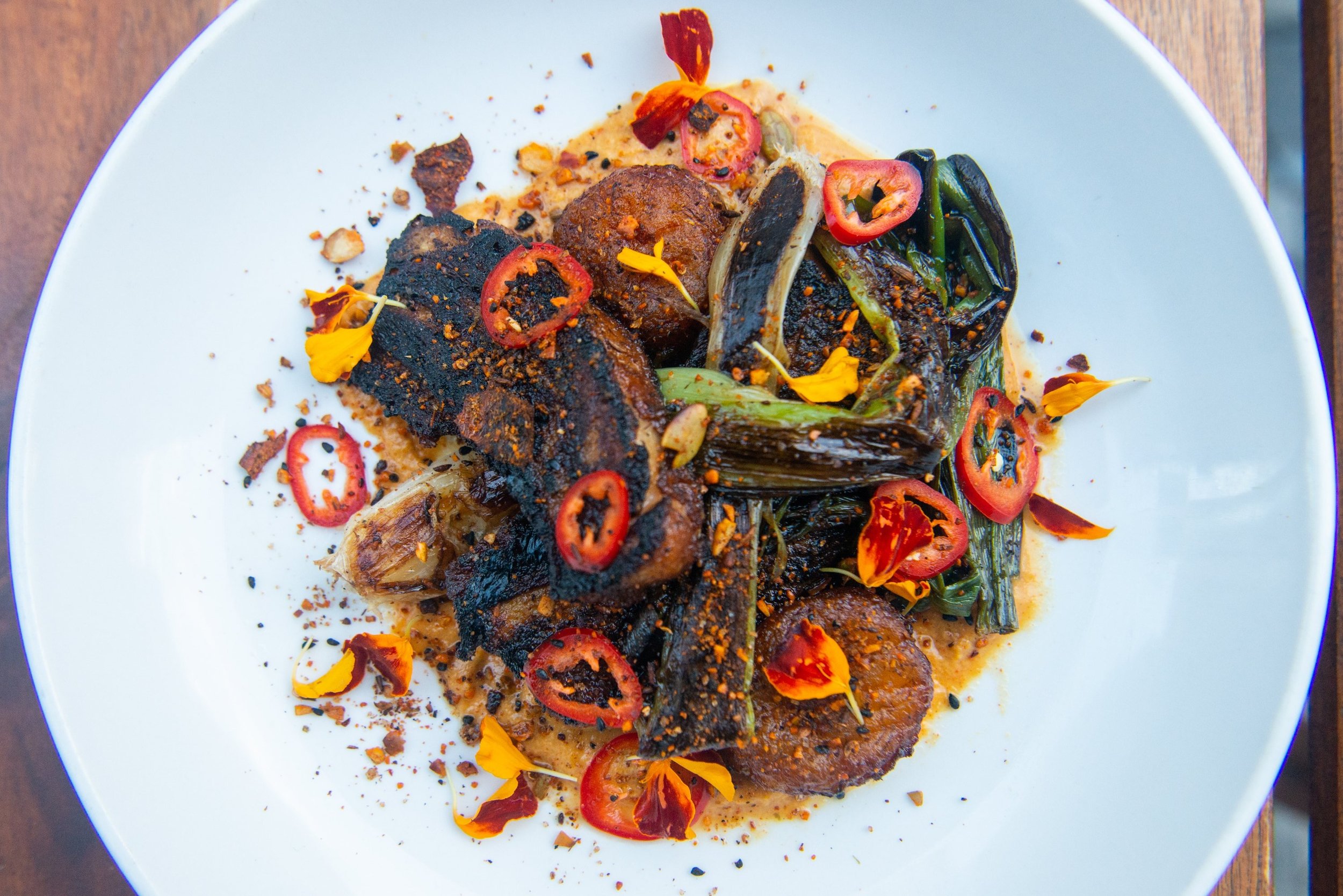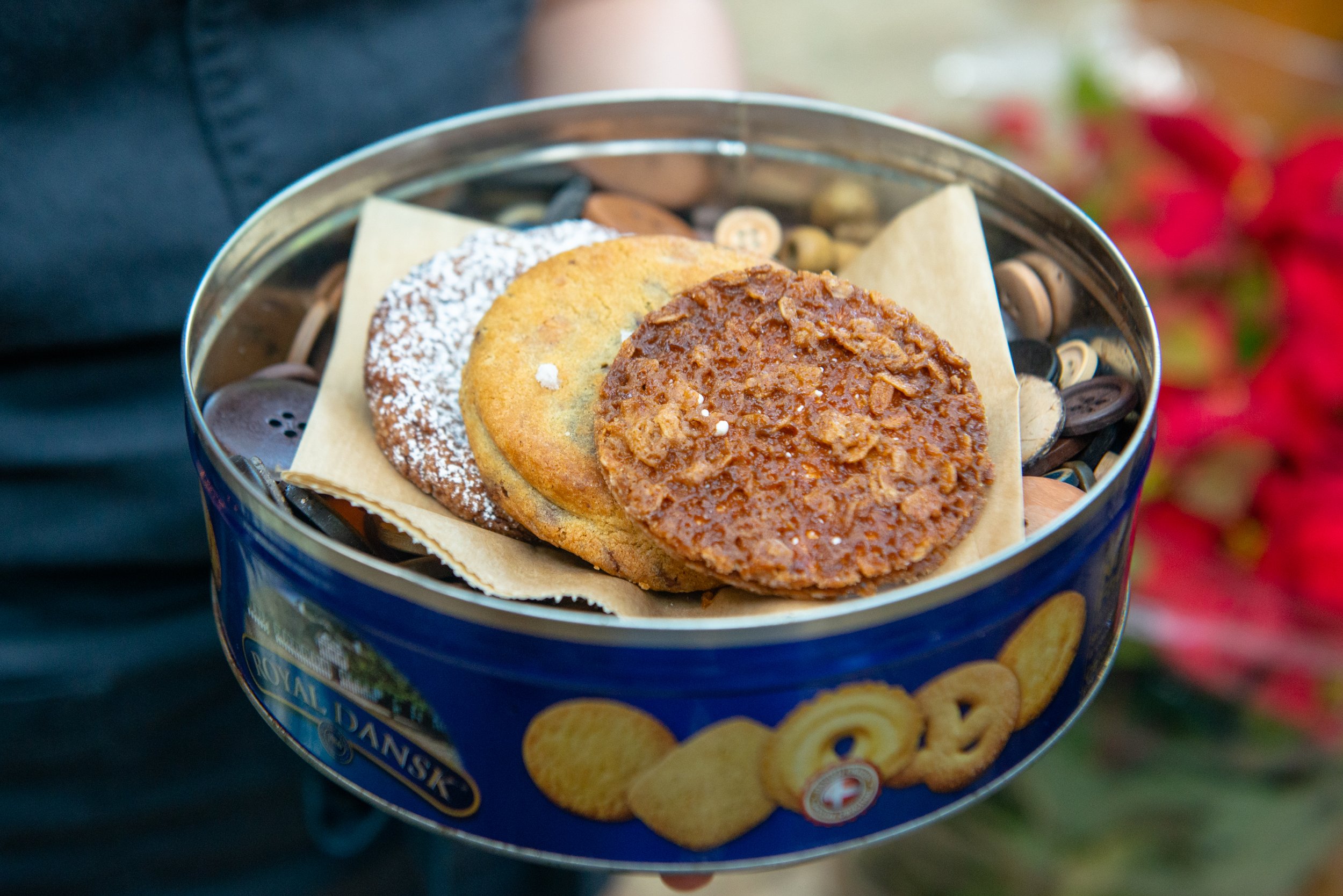The Overtown of Tomorrow
Known as a national beacon for Black talent, Overtown has one of the most complex histories of any Miami neighborhood. We look back at its legacy as restaurant projects support the community.
The Miami neighborhood of Overtown has always been intriguing; it can be vexingly dark and the brightest star at the same time. The streets echo the jazz greats of an era gone, when Overtown served as the epicenter of commerce and prosperity of Black Americans in Miami.
But in the 1960s, a mess of concrete and asphalt crashed down in the form of Interstate 95, jutting through Overtown and cutting it off from the progress that completely surrounds it. By 1971, a path for I-395 was also erected in the neighborhood.
At times, the residents’ efforts to succeed were drowned by social ailments—drug epidemics and homeless people living under that interstate—and, less often now, the pop pop of unresolved conflicts. Always present, though, is the waft of flavor and promise, and that is what has drawn talented chefs and their concepts.
Overtown personifies the resilience of a people who seek opportunity and restoration. The removal of the implanted highway started about a year ago, and an $818 million state transportation project will reconnect Overtown to nearby Downtown Miami and Miami Beach. Expected to be completed in 2024, a signature bridge will span 1,025 feet through Miami’s skyline, linking a double-decker SR 836 to an expanded I-95 and a widened I-395, which could give Overtown the break it needs.
exterior of the copper door B&B
chefs jamila ross and akino west of the copper door B&B
Young chefs such as Tristen Epps of Red Rooster Overtown and Akino West and Jamila Ross of The Copper Door B&B and Rosie’s Miami understand the pull of Overtown and answer it with their own food experiences, but they also also honor the ancestors and the history of a place that was known as Colored Town during the era of Jim Crow. These young Black entrepreneurs and chefs are attracted to the energy of the residential neighborhood, anchored by structures such as the Historic Lyric Theater, the Ward Rooming House, and century-old churches.
The revitalization of Overtown is spurred on by the Southeast Overtown/Park West Community Redevelopment Agency, charged with the mission to improve conditions. The organization has granted millions of dollars for residential and commercial restoration in Overtown. Red Rooster inherited the former Clyde Killens Pool Hall, which had already undergone an $850,000 renovation, and the CRA then poured another $1.75 million into the venture.
chef tristen epps of red rooster overtown
Red Rooster is located on Northwest Second Avenue, known in its heyday as “Little Broadway,” “The Strip,” and “The Great Black Way,” as the area was a beacon for artists such as Sam Cooke, Billie Holiday, and Ella Fitzgerald. In hope of recreating the mix of performing arts locations and small businesses, the CRA created the Historic Overtown Culture and Entertainment District in 2019.
Epps rolled into Overtown as executive chef, ready to continue the legacy of the Marcus Samuelsson Group. But it’s a delicate dance to acknowledge the past while at the same time etch itself in the psyche of the Overtown of tomorrow.
Epps, who has a Trinidadian upbringing, hopes to connect to Miami through the food. He ate at holes-in-the-wall, sampled Latin and Afro-Caribbean food, then let those flavors guide his menu. “From the moment I started writing the menu, I talked to other chefs to find out, ‘What do I need to have?’” Epps says.
He made the signature yard bird more citrus-forward, dumped the mashed potatoes for pigeon peas, added a raw bar and ceviches, and took inspiration from his international employees. “We tried to put all of that into the food to create a great, relatable menu with those small touches from Red Rooster Harlem,” Epps says. “We made this restaurant for this community.”
Copper door’s hot chicken and biscuits
The Copper Door B&B opened in 2018 after a meticulous restoration. (Keeping as much of the historical nuances as possible, Ross and West found a liquor bottle from the 1920s and a bullet shell in a closet.) The hotel developed a steady business from millennials and cruise ship passengers from the nearby port. Now, it’s meeting the culinary demands of the neighborhood through a restaurant, Rosie’s Miami, where people can delight in hot chicken, biscuits, waffles, cheddar grits, and croissants.
But becoming a thread of the community means not assuming a one-size-fits-all approach to restoration. One of West’s mentors (and Rising Star Mentor Award winner), Michael Schwartz, was considered a pioneer when he opened Michael’s Genuine Food & Drink 14 years ago in the Design District, then an underdeveloped area of Miami about three miles from Overtown. But the Design District didn’t have the history and residences of Overtown, and today, the district’s streets are lined with posh designers such as Hermès, Cartier, and Louis Vuitton.
Both Red Rooster and Rosie’s Miami worked with World Central Kitchen to feed the neighborhood during the coronavirus and are committed to hiring Overtown residents. But West says that there’s a lack of qualified resumes, so he and Ross hope to create an educational arm of their Independent Hospitality. “When it comes to guests, we steer them to Overtown, Wynwood, Downtown, Little Havana, etc., as opposed to typical tourist locations,” Ross says. “We are advocates for cultural and historical Miami.”
OVERTOWN THROUGH THE YEARS
1930s
The Central Negro District, later to be known as Overtown, is established due to segregation.
1937
Overtown has become overcrowded, and many white employers complain that their Black employees are bringing disease to their homes. Liberty Square public housing is built to relocate Black people outside of the city limits.
1950s
Overtown becomes Miami center for Black prosperity, where arts and entertainment venues and other businesses thrived.
1956
Interstate 95 plans are finalized. It reaches the southern end of the state in the 1960s and is built in the middle of Overtown, decimating homes and businesses. I-395 follows.
1964
With segregation abolished, residents have another reason to start migrating all over Miami-Dade county. The decline of Overtown continues.
1982
The Southeast Overtown/Park West Community Redevelopment Agency is founded.
1989
The Lyric Theater, constructed in 1913, is listed in the National Register of Historic Places. The restoration process continues today.
2018
Jamila Ross and Akino West open the newly resorted, Copper Door B&B.
2019
The Historic Overtown Culture and Entertainment District plan is released.
2020
Chef Marcus Samuelsson and Tristen Epps open Red Rooster’s Overtown location.

